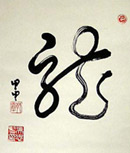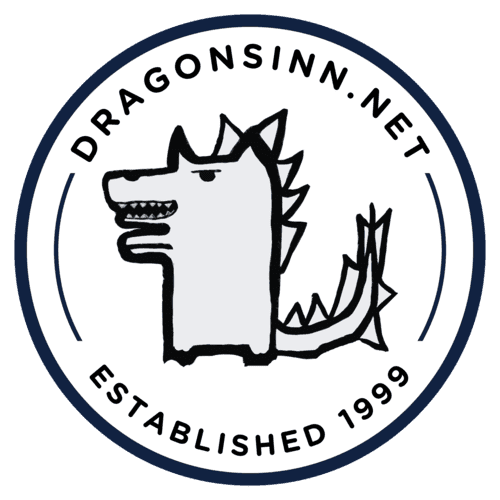This page on how to say ‘dragon’ in different languages was published long ago in the early 2000s.
Do you hang out at Duolingo and other language apps?
Languages are a fantastic way to get to know other cultures better. And isn’t it interesting that there are so many cultures and languages that have the word ‘dragon’ as part of their vocabulary?
The following list was originally mostly compiled from Draconian.com — visit that page to view the full list of dragon words in other languages. You can also try the online dictionary at Omniglot.
Included below are some of the more well-known words!
TOP THREE REQUESTS
What is the Chinese word for dragon?
The Chinese word for dragon is ‘lóng.’ 龙
What is the Norse word for dragon?
The Norse word for dragon is ‘Ormr.’ The name Lindwyrm comes from the old norse word Linnormr which means ‘ensnaring snake.’
What is the Celtic word for dragon?
The Celtic word for dragon is ‘Aerouant.’ The masculine Breton name Erwan and French equivalent Yves come from this Celtic word.
RELATED: Dragon Language Books: QnA with Madeline Palmer
‘Dragon’ in Different Languages
African: Nrgwenya
Afrikaans: Draak
Albanian: Dragua
Arabic: ![]()
Ah-teen, Tah-neen (plural),
(Al)Tineen, (Al)Tananeen (plural)
Austrian: Drach`n, Lindwurm
Bhutanese: Druk
Breton (Celtic): Aerouant
Bulgarian: Drakon (phonetic)
Catalan (N/E Spain): Drac
Cherokee: Unktena
Chinese: lung/long, Liung (Hakka dialect)
RELATED: Chinese Dragons | Japanese Dragons | Middle Eastern Dragons
Mandarin Characters:
![]()
[Left is “long” in Traditional Chinese.
Right is “long” in Simplified Chinese.]

Spiritual Calligraphy from the Chinese character ‘long’: dragon.
from Zhongxian Wu, Introduction of “Fu”
Croatian/Serbian: Zmij, Krilat Zmaj (pronounced “Mai” means Dragon), Azdaja (pronounced “Azhdaya” means Hydra)
Czech: Drak, Dráèek (Draaachek)
- Update (2 Jan 2025): Visitors might be interested to know that there are two Czech words for dragon, which are Drak and Saň; dráček is merely a diminutive of drak and means “small dragon.”
~ thanks to visitor Vez for the tip!
Danish: Drage
Draconian: Khoth, (pl. Khothu)
Dutch: Draak
Elven/Drow: Tagnik’zur
Elvish: Fenume, Amlub, Angulooke, Looke
English: DRAGON
Estonian: Draakon, lohe, lohemadu or tuuleuss (Wind Snake), lendav madu
Finnish: lohikäärme, draakki, dragoni
Fire Witch tongue: Katash wei’ vorki (kah-TASH whey VOR-key)
Flemish: Draeke
French: Dragun, dargon
Gaelic: Arach
German: Drache (pl. Drachen), Lindwurm, drake (pl. draken)
RELATED: German Dragons | Icelandic Dragons | Western Dragons
Greek:
Drakontas. Male: drakos (or thrakos), Female: drakena (or thrakena)
Hawaiian: Kelekona, (plural) Na Kelekona
Hebrew:
Drakon, (plural) Drakonim, Tanniym
Hindi:
Go-ta (phonetic)
Hmong: Zaj
Hungarian: Sárkány
Icelandic: Dreki
Indonesian: Naga
Iranian: Ejdeha
Irish: Draic
Islamic: th’uban, tinnin
Italian: Drago, dragone, volante, dragonessa
Japanese: Ryu (pronounced “Riu”, rhyming with “few”), Tatsu

Kanji “Ryu” magnet from J-Box
Jibberish: Gidadraggidaen (pronunced “gid-a-drag-gid-ah-en”)
RELATED: Dragon Travel Photos
Klingon: lung’a’ puv (pronounced loong-AH poov) “Flying Great Lizard”
Korean: Yong
RELATED: Korean Dragons | Vietnamese Dragons
Latin: Draco, dracon, draco, dragon, dragoon, serpent, serpens
Luxembourgian: Draach
Malay: Naga
Mongolian: Luu
New Zealand (Maori): Tarakona
Norse: Ormr
Norwegian: Drage
Pig-Latin: Agon-dray. Pig-Latin is a language game.
Polish: Smok
Portugese: Dragão
Quenya (elven): Loke, winged: Ramaloke, sea: Lingwiloke, fire: Uruloke
Roman: Draco
Romanian: Dragon (pl. Dragoni), Zmeu (pl. Zmei), dracul, drakul
Russian:
Sanskrit: Naga (type of snake-human-dragon)
Scandinavian: Orm, Ormr
Scottish: Dreugan
Slovenia: Zmaj = Dragon, Hidra = Hydra.
Spanish: Dragón, El Draque, Brujah
Swedish: Drake, lindorm
Tagalog: Drakón
Thai:
Tibetan: Brug (Ladakh dialect)
Turkish: Ejderha
Ukrainian: Drakon
Vietnamese: Rong (poetic), rng (regular)
Welsh: Ddraig
Yugoslav: Zmaj, Azdaja
Zulu: Uzekamanzi
As a bonus, here are some famous cultural sayings about dragons.
Feb ’23 update: The Chinese and Japanese dragon sayings have been moved to the Asian dragon quotes page.
Other Sayings
Latin: Draco dormiens nunquam titillandus translated from Latin means ‘never tickle a sleeping dragon.’ It is the Hogwarts school motto in the Harry Potter series.
Icelandic Proverb: The proverb ‘dragons often rise up on their tails’ is recorded in Málsháttakvæði, a 12th century Icelandic poem. The dragon often encountered in the poetry of medieval Scandinavian poetry is a ship, referring to the dragon shape on the warships of the Viking era.

